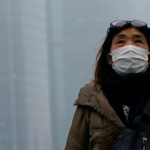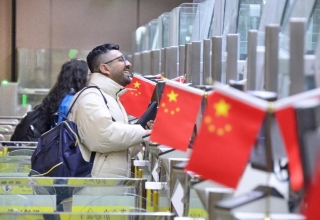
China’s abrupt shift away from a zero-COVID plan in December 2022 makes its reopening one of the year’s most significant economic developments. In the context of escalating economic and social costs involved with maintaining rigorous containment measures, it has occurred quicker and earlier than analysts predicted.
On the expectation that Chinese consumers will unleash their pent-up demand, reopening has fuelled prospects for a larger economic boost. China’s economic expansion is a significant source of worldwide demand and a key factor in several regional trade operations.
In 2023, however, will the end of zero-COVID actually stimulate the Chinese economy?
Last year’s sluggish growth in China was mostly attributable to the powerful reaction to the two Omicron waves in the second and fourth quarters of 2022. Nomura calculated that 25.1% of China’s gross domestic product was negatively impacted by zero-COVID rules by the end of November 2022.
In the first three quarters of 2022, total consumption and investment barely contributed two percentage points to GDP, significantly below the average of 6.7% before the epidemic, according to yearly GDP statistics from China’s National Bureau of Statistics.
Testing requirements and worries of sudden mobility limits stifled family expenditure and service activities significantly. In the first 11 months of 2022, there was no increase in retail sales. In seven of the twelve months of 2022, the purchasing managers’ index (PMI) for China revealed a decline in services company activity, with the final quarter exhibiting particularly poor performance.
Ending zero-COVID policies eliminates a significant barrier to China’s progress. The Coface prediction for GDP growth in 2023 of 4% is cautious compared to the expected official aim of more than 5%.
Keep Reading
Analysts are largely optimistic over the impact of the reopening on China’s economic recovery, but there will be transitional pain for at least the next couple of months until economic activity returns to normal.
The rapid increase in infections caused by the easing of zero-COVID policies has decreased labor supply. More factory workers, truck drivers, office employees, and service people become sick, while those who dread catching COVID-19 self-isolate, thus impacting output, logistics, and consumption.
There is also a possibility of crowding when Chinese New Year travel restrictions are lifted for the first time in four years.
Airfinity, a health data company located in the United Kingdom, anticipated that the current wave would reach its high by mid-January, while a second wave fueled by the expansion to rural areas would reach its peak in early March.
Optimistically, Chinese economic activity might return to a more stable state as early as March, and a more robust recovery could start in the second quarter of 2023.
In the third quarter of 2022, the rate of household savings in China reached a record high of 40.3% of GDP. It appears that the majority of them do not intend to use their money. A recent poll by the People’s Bank of China (PBOC) revealed that the inclination to save remained high, which is not encouraging for future spending.
This significant preference for saves over spending may be viewed in the context of declining net worth, which has been brought down by housing and financial asset underperformance and worse employment prospects.
The unemployment rate is increasing, with the unemployment rate among young workers (ages 16 to 24) staying elevated at 17.1%.
During the epidemic, exports were a significant contributor to China’s economic development, with a record goods trade surplus in 2022. In 2023, however, the foreign demand for Chinese-made goods is anticipated to be significantly lower, since other major economies likewise anticipate subpar growth or even recessions.
Foreign investment will also require time to recoup. Zero-COVID and sluggish growth projections have deterred foreign capital investment plans, especially those dependent on Chinese consumers. Some international corporations considered shifting their manufacturing base away from China due to supply chain concerns.


























